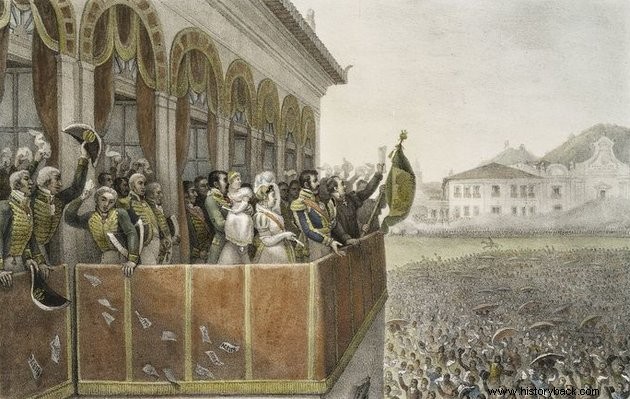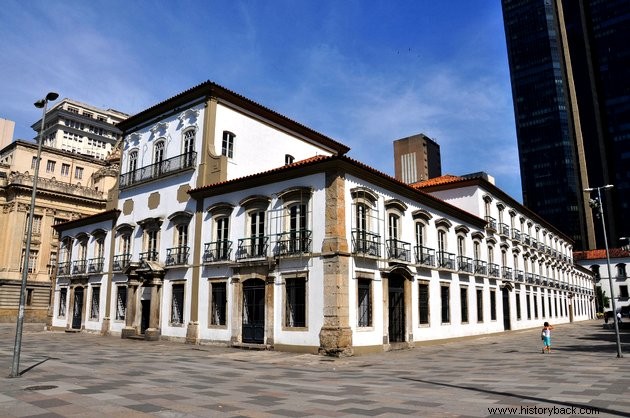The Fico Day, January 9, 1822 is the date carried out by the regent of Brazil, Prince Dom Pedro, who decides to go against the orders of the Portuguese Courts and remain in Brazil.
The event got its name because, at the time, D. Pedro uttered the phrase that would become famous:
This decision is considered an important step towards Brazil's independence process, which took place on September 7, 1822.
Why did D. Pedro decide to stay in Brazil?
The desire for the Prince Regent Dom Pedro to remain in Brazil began with the fear that Portugal would withdraw from Brazil the rights acquired with the elevation of Brazil to the United Kingdom.
If this happened, Brazil would once again return to the status of a colony and would lose the right to trade with other nations.
Thus, the idea arises among those who made up the Brazilian rural and political elite, of forming a "Kingdom of Brazil" independent of Portugal.

King Dom João VI seemed to predict that this territory of the United Kingdom of Portugal, Brazil and the Algarves could go through the same process as the Spanish colonies.
In this way, before returning to Portugal on account of the Liberal Revolution in Porto, he left his son and heir in Brazil.
However, Dom Pedro himself considered the idea of moving away from the Portuguese court, either through the influence of people like José Bonifácio, or through the support of his wife, Dona Leopoldina.
In December 1821, Dom Pedro was ordered to return to Portugal to finish his academic training.
The news falls with a bombshell among Brazilians, above all, the Brazilian agrarian elite. This is because she wanted to preserve the commercial freedoms they had acquired after the arrival of the Portuguese Royal Family to Brazil in 1808.

This encouraged the rural aristocracy to ask for D. Pedro to remain in Brazil. For this reason, the collection of signatures began in Rio de Janeiro, Minas Gerais and São Paulo, asking that Dom Pedro not return to Portugal.
More than eight thousand signatures were presented by the President of the Senate, José Clemente Pereira, to Dom Pedro, who decided to remain in Brazil.
Therefore, on January 9, 1822, Dom Pedro did not comply with orders from the Portuguese Courts to leave Brazil immediately and return to Portugal.
On the balcony of the Paço Real (which would become the Paço Imperial after independence), Dom Pedro communicated his decision to the crowd that watched him:
This episode would go down in history known as "Dia do Fico".
Eight months later, supported by the agrarian elites and the free population, D. Pedro declares the Independence of Brazil.
Curiosities about the Day of Fico
Portugal even sent troops to Brazil, captained by Lieutenant General Jorge Avilez, with the intention of regaining power over Brazil. However, the Prince Regent D. Pedro orders the withdrawal of troops, the soldier and his commanders are expelled from Brazil.
A shortened version of the phrase "If it is for the good of all and the general happiness of the Nation, I tell the people that I stay." became a common citation in Brazil.
Also read on this subject:
Causes of Brazil's Independence
Empress Leopoldine
